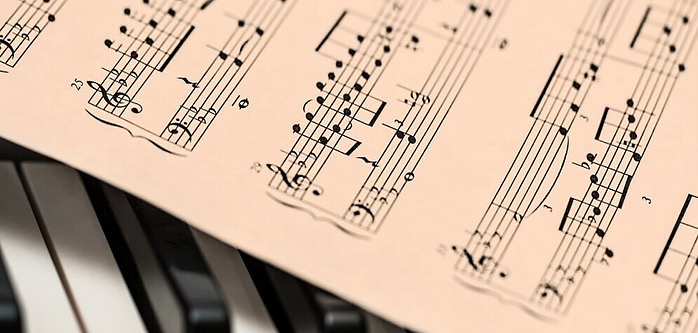The Surprising Effects Of Music On The Brain: A Harmonious Symphony Of Science
Music is a universal language that has been an integral part of human culture for centuries. Beyond its aesthetic appeal and entertainment value, researchers have delved into the profound impact of music on the brain. The intricate relationship between music and the brain has become a fascinating field of study, revealing a myriad of surprising effects that extend beyond simple enjoyment. From influencing mood and memory to promoting cognitive function, the effects of music on the brain are both intricate and profound.

The Emotional Resonance of Music
One of the most immediate and palpable effects of music on the brain is its ability to evoke emotions. Whether it’s the euphoria induced by an upbeat rhythm or the melancholy stirred by a soulful melody, music has the power to reach deep into the emotional core of individuals. Neuroscientific studies have shown that listening to music activates various regions of the brain associated with emotion, such as the amygdala and the nucleus accumbens.
Moreover, the brain’s response to music is not limited to a single emotion. Different genres and musical elements can trigger a range of emotional responses, offering a diverse palette of feelings. For example, fast tempos and major keys tend to evoke positive emotions, while slower tempos and minor keys may elicit more somber or reflective moods. Understanding these nuances allows musicians and composers to craft pieces that can intentionally evoke specific emotional responses.
Memory and Music: A Harmonious Connection
The connection between music and memory is another fascinating aspect of the brain’s interaction with sound. Research suggests that music has the ability to enhance memory and aid in the recall of information. This phenomenon, known as the “Mozart effect,” gained widespread attention after studies suggested that listening to Mozart’s music could temporarily boost spatial-temporal reasoning skills.
Beyond the Mozart effect, the role of music in memory has been explored in various contexts. Music has been found to be particularly beneficial for individuals with neurodegenerative diseases such as Alzheimer’s. Patients who may struggle to recall familiar faces or everyday tasks often show remarkable improvement when exposed to music from their past. This suggests that music has a unique ability to tap into deep-seated memories, creating a bridge that transcends the cognitive decline associated with these conditions.
Neuroplasticity and Cognitive Enhancement
The brain’s remarkable ability to adapt and reorganize itself, known as neuroplasticity, is a key factor in understanding the cognitive effects of music. Learning to play a musical instrument, for instance, has been shown to induce structural changes in the brain. Musicians often exhibit increased gray matter volume in regions associated with motor skills, auditory processing, and spatial-temporal abilities.
Moreover, the cognitive benefits of musical training extend beyond the realm of music itself. Studies have found that children who receive musical education often perform better in academic subjects such as mathematics and language. The skills developed through learning an instrument—such as discipline, concentration, and pattern recognition—contribute to cognitive enhancement in various domains.
In addition to cognitive development in children, musical activities have been explored as potential interventions for cognitive decline in older adults. Engaging in music-making, whether through playing an instrument or singing, has shown promise in maintaining cognitive function and delaying age-related decline. This suggests that music is not only a source of cognitive enrichment during development but also a potential ally in preserving cognitive health throughout the lifespan.
Stress Reduction and the Neurochemistry of Music
The soothing power of music in alleviating stress and anxiety is a widely recognized phenomenon. Neurochemical research has shed light on the mechanisms underlying this calming effect. Listening to music has been found to stimulate the release of neurotransmitters such as dopamine, serotonin, and oxytocin—chemical messengers associated with pleasure, mood regulation, and social bonding.
Moreover, the physiological responses to music contribute to its stress-reducing effects. A slower tempo and rhythmic regularity can lead to a decrease in heart rate and blood pressure, promoting a state of relaxation. These physiological changes are not only observable in subjective reports of reduced stress but also in objective measures such as cortisol levels—a hormone associated with stress.
The therapeutic application of music, known as music therapy, has gained traction in various healthcare settings. From hospitals to mental health facilities, music therapy is utilized to address a range of conditions, including anxiety disorders, depression, and post-traumatic stress disorder (PTSD). The personalized and non-invasive nature of music therapy makes it a valuable tool in promoting mental health and well-being.
The Intersection of Music and Motor Skills
The intricate coordination required to play a musical instrument engages various regions of the brain responsible for motor skills. Learning to play an instrument involves precise finger movements, hand-eye coordination, and a keen sense of timing. As individuals practice and refine these skills, they not only enhance their musical abilities but also strengthen the neural connections associated with motor control.
Studies have shown that children who receive musical training often exhibit improved motor skills and coordination compared to their non-musical peers. This connection between music and motor skills extends beyond childhood, as playing instruments or engaging in rhythmic activities can be beneficial for individuals of all ages. For example, dance—a form of expressive movement closely tied to music—has been shown to have positive effects on balance and gait in older adults.
The therapeutic potential of music in motor rehabilitation is also being explored. In cases of stroke or neurodegenerative disorders, where motor function may be compromised, incorporating music into rehabilitation programs has shown promise in improving movement and coordination. The rhythmic cues provided by music can act as a guiding framework for individuals relearning motor skills, making the rehabilitation process both engaging and effective.
Conclusion
In the symphony of science and art, the surprising effects of music on the brain compose a harmonious narrative that spans emotions, memory, cognition, and even physical coordination. From the therapeutic applications of music in healthcare to its role in cognitive development, the intricate relationship between music and the brain continues to captivate researchers and enthusiasts alike.
As our understanding of neuroscience deepens, so does our appreciation for the multifaceted ways in which music engages and shapes the brain. Whether it’s the rhythmic beats that synchronize our movements, the melodies that evoke our deepest emotions, or the harmonies that linger in our memories, music remains a powerful force that transcends cultural boundaries and resonates within the very core of our humanity. The surprising effects of music on the brain invite us to explore the profound connections between sound and cognition, offering a melody of possibilities for enhancing our well-being and understanding the intricate workings of the mind.




